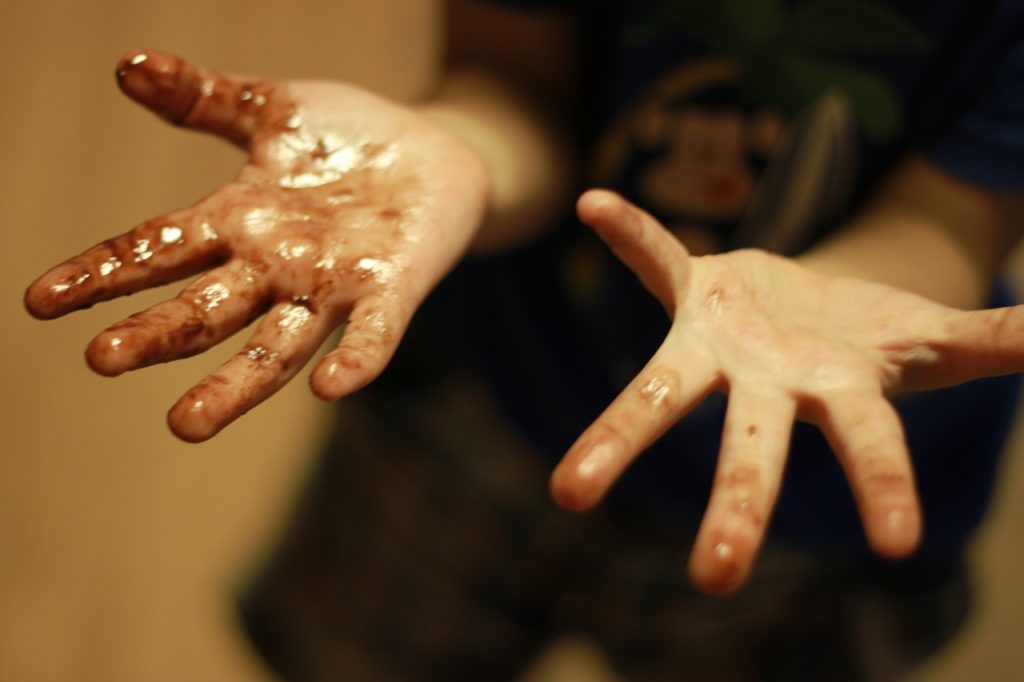WASHINGTON, DC – Global Handwashing Day is October 15. The annual observance was established by the Global Handwashing Partnership in 2008. The Partnership is a coalition of private sector entities, academic institutions, government agencies, and non-governmental organizations that collaborate to promote handwashing.
 I thought that responsibility belonged to my parents.
I thought that responsibility belonged to my parents.
“Don’t touch anything with your dirty hands. Go wash them with soap and water.”
“Make sure to wash your hands after using the bathroom.”
“It’s time for supper. Go wash your hands before you come to the table.”
“You’ve been feeding the chickens. Go wash your hands.”
I heard “Go wash your hands” so often that I thought it was one of the Ten Commandments. My grandparents always told me the same thing, so that pretty well confirmed my thinking.
If handwashing is that well-understood, do we really need a global coalition to promote it?
The answer is “yes,” and here are a few reasons why from National Today.
- Only 60% of the world’s population has access to a basic handwashing facility.
- More than 10 million people in 17 different countries lack proper handwashing facilities.
- Only one-tenth of one percent of households in Ethiopia, for example, have immediate access to soap and clean water with which to wash their hands.
- Handwashing is essential to containing the spread of the Coronavirus and numerous other communicable diseases.
The Centers for Disease Control and Prevention says that “handwashing with soap and water is one of the most effective ways to stop the spread of germs and stay healthy.” They claim that “Keeping hands clean can prevent 30% of all diarrheal diseases and 20% of respiratory infections, such as a cold or the flu.”
Handwashing with soap removes germs from hands. This helps prevent infections because:
- People frequently touch their eyes, nose, and mouth without even realizing it. Germs can get into the body through the eyes, nose, and mouth and make us sick.
- Germs from unwashed hands can get into foods and drinks while people prepare or consume them. Germs can multiply in some types of foods or drinks, under certain conditions, and make people sick.
- Germs from unwashed hands can be transferred to other objects, like handrails, tabletops, or toys, and then transferred to another person’s hands.
- Removing germs through handwashing, therefore, helps prevent diarrhea and respiratory infections and may even help prevent skin and eye infections.
The CDC and others even say that how we wash our hands is important. Who knew that there is a right way (and all kinds of wrong ways) to wash our hands? Here’s a short video (0:55) that demonstrates the right way.
Notice that using soap is integral to doing the job right. That must be why my parents almost always added the admonition, “Don’t forget to use soap!”
It makes no difference if the soap is antibacterial. Studies indicate that antibacterial is no more effective than regular. Soap is important because, when combined with water, it creates a lather containing pockets of micelles that trap and remove potential disease-spreading dirt and other microscopic particles.
As it turns out, “Go wash your hands” is not one of the Ten Commandments. Nonetheless, my parents proved themselves to be pretty smart because they were insisting on handwashing years before a Global Handwashing Partnership existed.
Pray for the NGOs and faith-based organizations that work among those people who have been unaware of this simple measure that we take for granted to help ourselves stay healthy.
Read more news on Health Issues and Humanitarian Services on Missions Box.
Sources:
- The Global Handwashing Partnership, Official Website
- The Centers for Disease Control and Prevention, Global Handwashing Day
- National Today, Global Handwashing Day – October 15, 2020
- Globalwaters, Global Handwashing Day 2020




